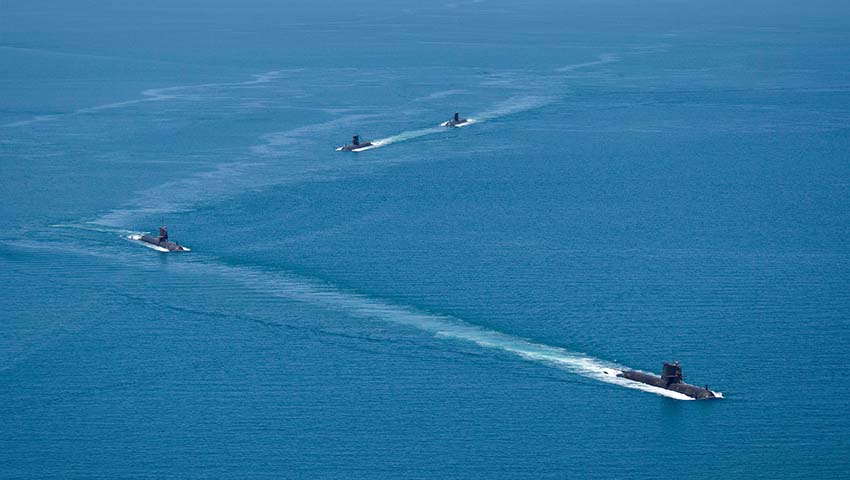The defence minister has backed the government’s long-term investment in a fleet of nuclear-powered submarines amid suggestions the platform could be obsolete upon delivery.
In an op-ed submitted to the Australian Financial Review, Minister for Defence Peter Dutton touted the capability benefits of a prospective fleet of at least eight nuclear-powered submarines, promised under the new AUKUS partnership between Australia, the UK and the US.
Minister Dutton said the Royal Australian Navy’s future submarines — expected to be modelled on either the US Navy’s Virginia Class or the Royal Navy’s Astute Class vessels — would possess enhanced stealth, speed, manoeuvrability, endurance and survivability.
He noted nuclear-powered submarines are built to carry a larger suite of advanced weapons and deploy underwater vehicles.
Minister Dutton added the deal would bolster interoperability between the AUKUS allies, supporting a bolder military posture amid mounting tensions in the Indo-Pacific.
The defence minister also addressed obsolescence claims, with some observers suggesting submarines could become superfluous in lieu of emerging underwater detection technology.
According to Roger Bradbury, emeritus professor of the Australian National University, the age of subs may be “coming to an end”, with emerging R&D threatening to undermine the platform’s specialised stealth capabilities.
“There is a huge and growing push of science and technology into sensing the oceans. This is being driven not only by military needs, but also by economic and environmental needs. And it is leading to a considered view that the oceans will become ‘transparent’ over the coming decades,” he said in a piece published by Defence Connect.
“A transparent ocean will be the result of a coming integration of sensing systems not yet developed, and it is likely to come together, when it does, quickly.
“The submarine era will likely end with a bang not a whimper.”
But in his defence of the AUKUS deal, Minister Dutton stressed that technological advancements may also further underwater stealth capability.
“Those who argue that developments in detection systems and autonomous underwater vessels will make crewed submarines redundant forget that technology cuts both ways,” he said.
“The innovations of tomorrow may just as readily shield a submarine from detection.”
Minister Dutton added that Australia “must deal with present realities”, noting that more than half of the world’s 470 in-service submarines are operating in Indo-Pacific waters.
“Were Australia not to invest in submarines – especially as a maritime and trade-dependent island nation – we would be dangerously exposed,” the minister warned.
The Commonwealth government has established a Nuclear-Powered Submarine Task Force, responsible for working with US and UK stakeholders over the next 18 months to determine a procurement pathway for Australia.
The group’s considerations are expected to include requirements for design, construction, maintenance, infrastructure, industry capacity, nuclear safety, environmental protection, crewing and training.
The Task Force will also advise on building timeframes, costs and supply needs.
[Related: The sub story no one wants to hear]








